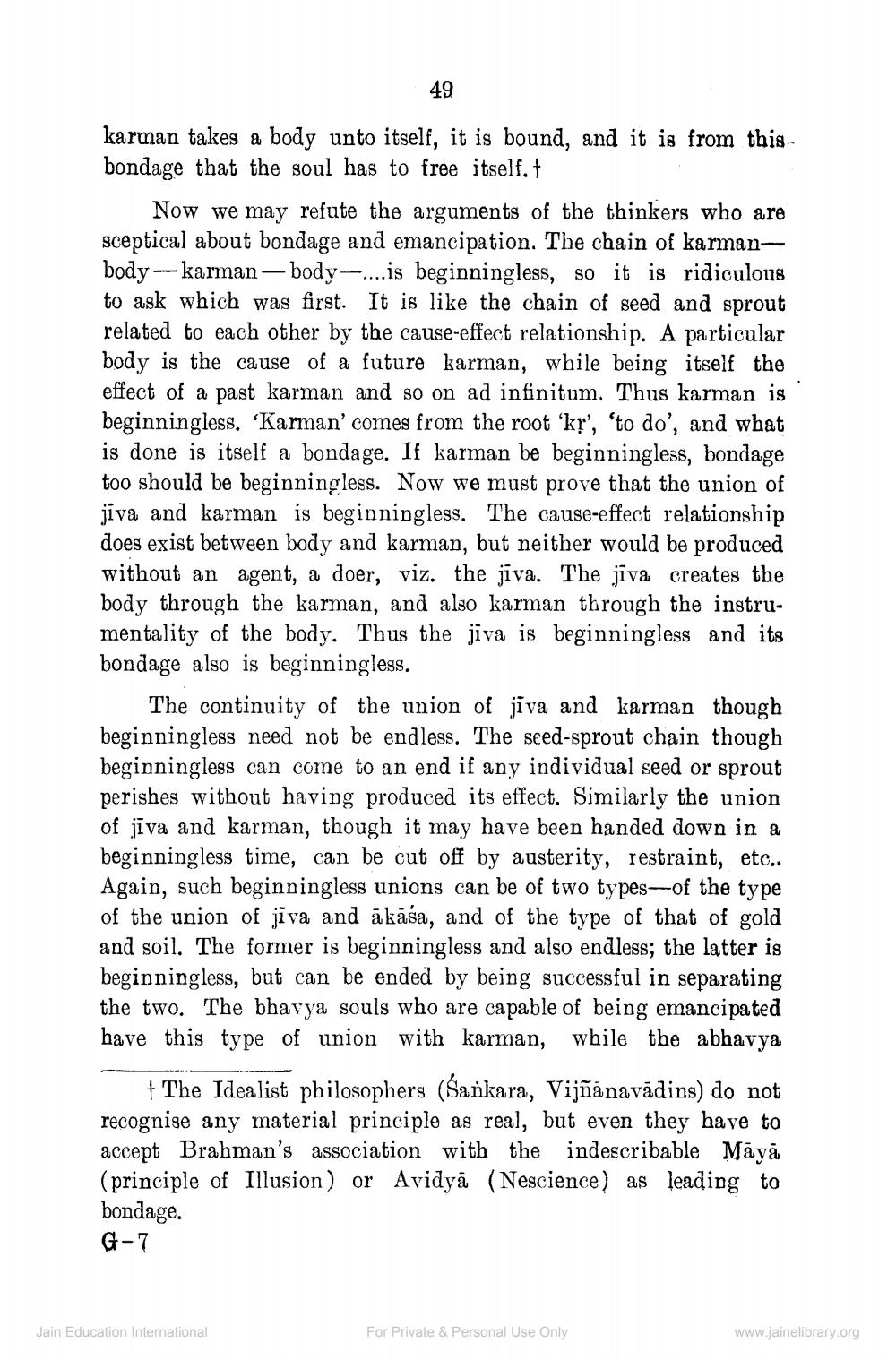________________
49
karman takes a body unto itself, it is bound, and it is from this.bondage that the soul has to free itself. +
Now we may refute the arguments of the thinkers who are sceptical about bondage and emancipation. The chain of karmanbody -- karman-body-....is beginningless, so it is ridiculous to ask which was first. It is like the chain of seed and sprout related to each other by the cause-effect relationship. A particular body is the cause of a future karman, while being itself the effect of a past karman and so on ad infinitum. Thus karman is beginningless. 'Karman' comes from the root 'kr', 'to do', and what is done is itself a bondage. If karman be beginningless, bondage too should be beginningless. Now we must prove that the union of jiva and karman is beginningless. The cause-effect relationship does exist between body and karman, but neither would be produced without an agent, a doer, viz. the jīva. The jīva creates the body through the karman, and also karman through the instrumentality of the body. Thus the jiva is beginningless and its bondage also is beginningless.
The continuity of the union of jīva and karman though beginningless need not be endless. The seed-sprout chain though beginningless can come to an end if any individual seed or sprout perishes without having produced its effect. Similarly the union of jīva and karman, though it may have been handed down in a beginningless time, can be cut off by austerity, restraint, etc.. Again, such beginningless unions can be of two types--of the type of the union of jīva and ākāśa, and of the type of that of gold and soil. The former is beginningless and also endless; the latter is beginningless, but can be ended by being successful in separating the two. The bhavya souls who are capable of being emancipated have this type of union with karman, while the abhavya
+ The Idealist philosophers (Sankara, Vijñānavādins) do not recognise any material principle as real, but even they have to accept Brahman's association with the indescribable Māyā (principle of Illusion) or Avidyā (Nescience) as leading to bondage. G-7
Jain Education International
For Private & Personal Use Only
www.jainelibrary.org




